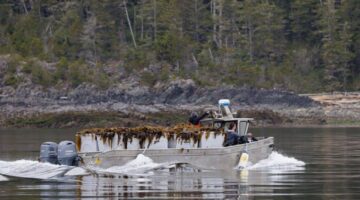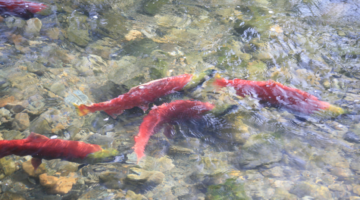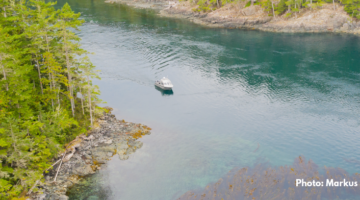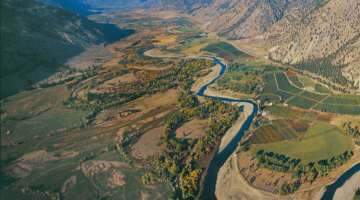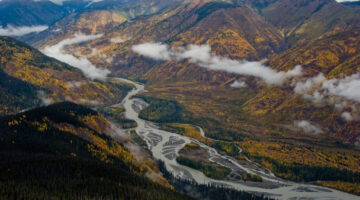Indigenous Protected and Conserved Areas (IPCA)
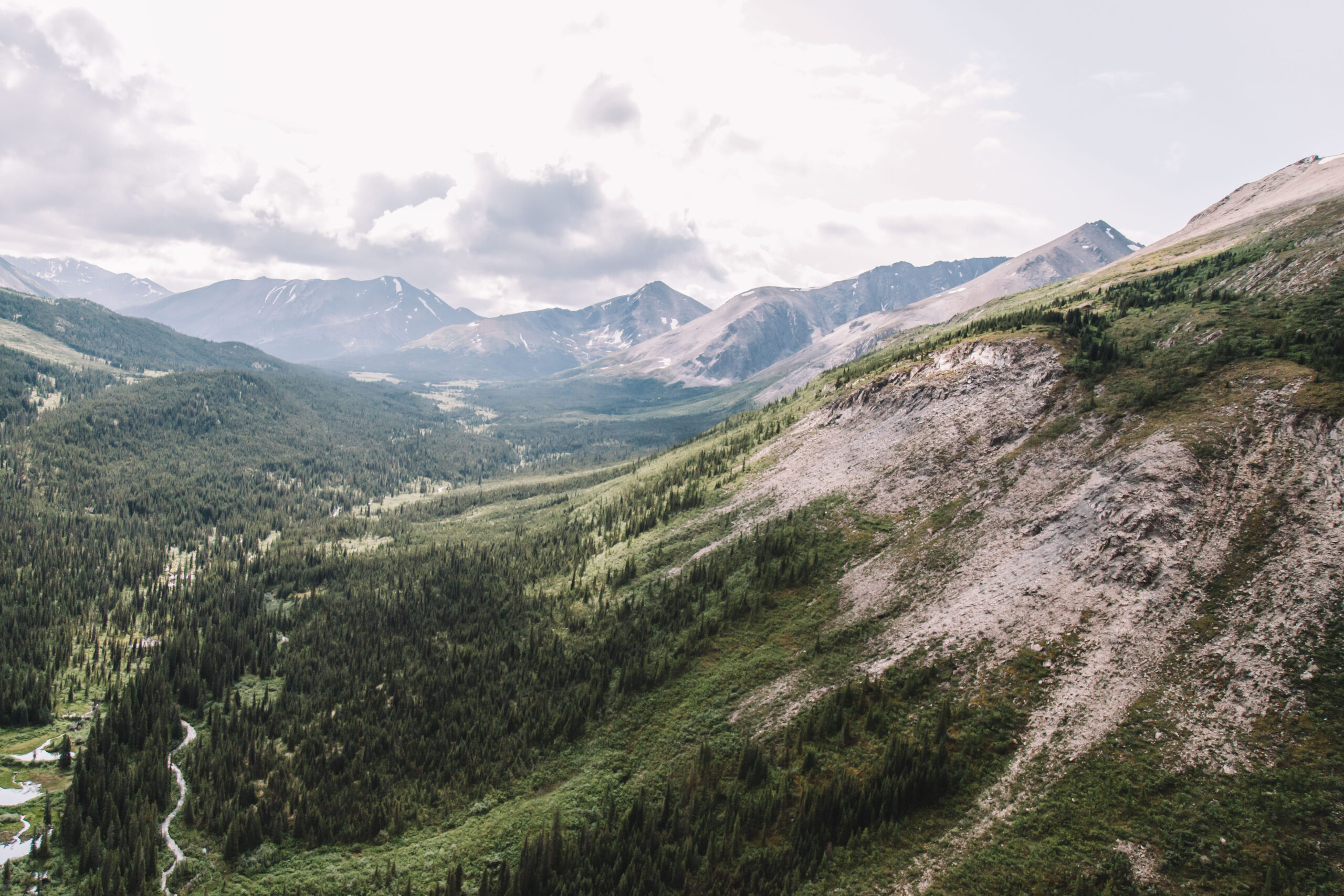
Photo: Dene K’éh Kusān by Britney Berner Creative
Indigenous Peoples have cared for lands and waters since time immemorial. As original stewards, Indigenous Peoples’ leadership, knowledge and experience are essential to mapping a future where communities and Nature can thrive.
Indigenous Protected and Conserved Areas (IPCAs) play a critical role in conserving biodiversity and reducing the effects of climate change.
What are IPCAs?
The Indigenous Circle of Experts (ICE) report, We Will Rise, defines IPCAs as “lands and waters where Indigenous governments have the primary role in protecting and conserving ecosystems through Indigenous laws, governance and knowledge systems. Culture and language are the heart and soul of an IPCA”.
IPCAs can vary in many ways, but they share three essential elements:
- They are Indigenous-led
- They elevate Indigenous rights and responsibilities
- They represent a long-term commitment to conservation
Indigenous Peoples are the most effective land managers. Indigenous-managed lands and waters span approximately 20% of the planet, yet support 80% of the world’s biodiversity. IPCAs support Indigenous cultural connection to the land and waters, encourage respectful and reciprocal interactions with the natural world, and help address the dual crises of climate change and biodiversity loss. IPCAs are a path forward to advance reconciliation and support biodiversity.
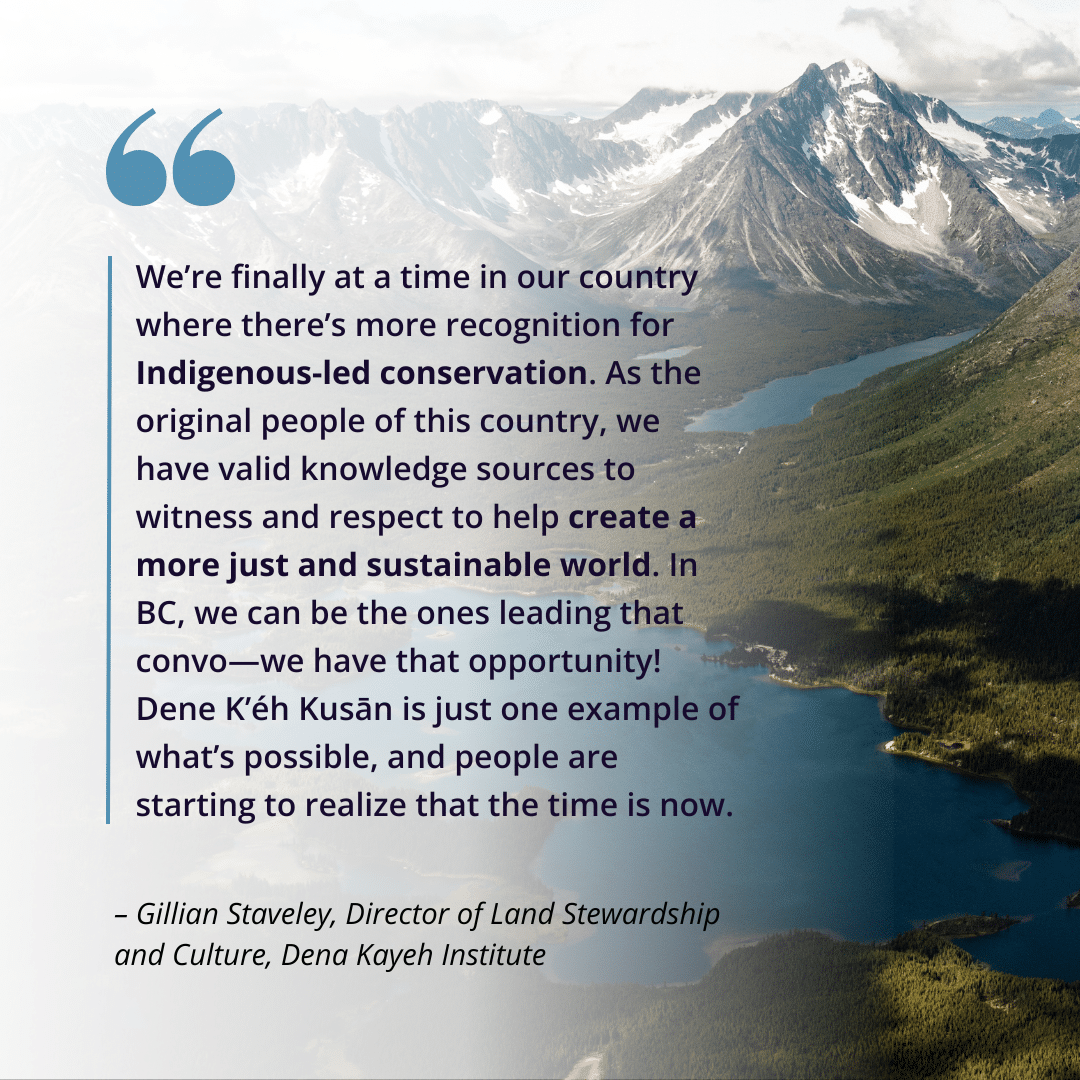
IPCAs advance reconciliation efforts
Supporting IPCAs provides an opportunity for the BC and Canadian governments to advance reconciliation by recognizing and upholding Indigenous rights.
Government support for IPCAs includes:
- Co-developing protected areas with Indigenous Nations
- Establishing a legal framework to recognize IPCAs, and
- Providing continued resources to support Indigenous Guardian programs across BC and Canada
IPCAs recognize the intimate relationship between Indigenous Peoples and the lands and waters within their Territories. They provide opportunities for Indigenous People’s inherent right to govern their lands, water, wildlife and plants; practice their culture; and develop or use natural resources.
IPCAs help protect biodiversity
There are dozens of examples in BC where IPCAs are already leading the way to advance conservation on land and in the ocean.
Current IPCA proposals would add just over 9% to BC’s protected area land base. Added protection for millions of hectares of lands and waters would support vibrant networks of life, provide a haven for species at risk and create climate refuges for wildlife—all under the leadership of Indigenous Nations.
IPCAs weave together Indigenous Knowledge and western science to protect biodiversity. Indigenous Knowledge—accumulated over thousands of years of lived experiences with the land— provides immense insight into how to support biodiversity. Using both knowledge systems strengthens efforts to address complex environmental issues like biodiversity loss.
How are IPCAs Created?
There is no one-size-fits-all approach to creating an IPCA. However, Indigenous communities lead in every aspect, from designation to management planning, monitoring, enforcement, and more.
No pathway currently exists to recognize or support IPCAs through provincial or federal legislation or policy. Indigenous Peoples have the right to self-determination and can establish an IPCA in their territories without legal recognition from non-Indigenous governments. Recognition and support, where requested, from BC and Canada would help support the creation of IPCAs. When invited, provincial and federal acknowledgement of IPCAs would ensure management plans are respected and help limit any expressed prohibited activities including mining, logging or bottom-trawling that can harm the environment.
Indigenous-led conservation signals a path toward a brighter future. Centering Indigenous Peoples at the forefront of land-use planning and decision-making in their territories helps uphold Indigenous rights to culture, land, and ways of life.
How can you support Indigenous-led conservation?
Many Indigenous laws and cultures have deep connections to the health of Nature and biological diversity today. These teachings guide a balanced relationship with the land, water, plants, and animals in a way that ensures abundance for future generations.
Fish, wildlife and their habitats are declining at an alarming rate globally and right here in BC. Over 1,600 species at risk call BC home.
IPCAs play a critical role to advance reconciliation, conserve biodiversity and reduce the effects of climate change as we all work together to protect 30% of lands and waters by 2030.
Resources
By learning about Indigenous-led conservation and sharing it with others, your support starts here. Below are resources for further learning and actions to show your support for Indigenous-led conservation.
Do you have any feedback for us? Get in touch at info@cpawsbc.org
Subscribe today
Stay in the loop! Subscribe for the latest updates on Indigenous-led conservation, action alerts and more right to your inbox.


